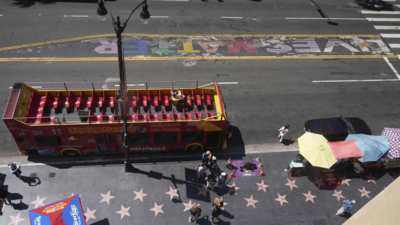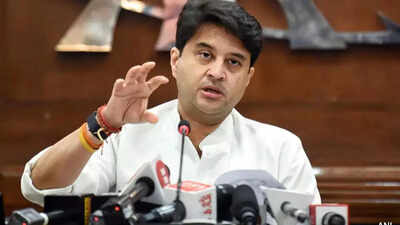5 years since George Floyd murder, Black lives still matter

Where once the bold yellow letters of Black Lives Matter shone brightly on the asphalt of 16th Street in the US capital, there are now SUVs. The lettering was removed in March after Republicans in Congress threatened to cut off federal funding to Washington.Keyonna Jones, one of the artists who painted the letters, told DW that this did not lessen the impact of what became known as Black Lives Matter Plaza. “It feels just as powerful being removed,” she said. “A mix of feelings: gratitude, overwhelmed, disappointed, but empowered because, yeah, art does things.”She and other artists had started painting the huge letters almost five years ago in the middle of the night. At dawn, when strangers stopped to help, they realized that she had become part of something bigger, something with a global impact.Jones told DW she was “grateful to be one of seven artists that helped paint the mural that actually got replicated all over the world within 24 hours after we did it.”She said this gave her strength: “That’s how change happens.”
‘I can’t breathe’
The change that Jones wanted, and still does, was justice and equality. It is five years since the African American man George Floyd was murdered in the US city of Minneapolis after being stopped by police. A white police officer knelt on his back and neck for over nine minutes, asphyxiating him. As he was dying, Floyd repeated the words “I can’t breathe.”The murder was captured on camera and the video soon went viral. Immediately, people went onto the streets to demonstrate against police violence in the US and to call for major reforms.With millions
How the Black Lives Matter movement went global
But BLM made waves far beyond the US. There were protests all over the world in solidarity with George Floyd, as demonstrators asked questions about their own governments. In Brazil and Colombia, protesters demonstrated against racist police violence against Indigenous and Black people in particular.In Europe, tens of thousands of people went out onto the streets. The protests were particularly big in Denmark, Italy and Germany. Tahir Della, the spokesperson for the Initiative Black People in Germany, told DW that this had shown there was a “growing awareness of the problem.”“The death of George Floyd can be seen as a turning point,” lawyer Laila Abdul-Rahman, who conducts research into police violence at Goethe University Frankfurt, told DW. She said that the BLM movement had made a significant contribution to shaping the debate in Germany, too. “The discourse has changed, including in academia.” of people participating, Black Lives Matter (BLM) became one of the biggest protest movements in US history.
‘His name is George Floyd’
However, five years after the murder of George Floyd, there is also disappointment. Initial hopes that the protests would lead to change mostly went unfulfilled, particularly in the US. “We haven’t seen the fullness of the changes that people were promised,” said Robert Samuels, co-author with Toluse Olorunnipa of the Pulitzer-prize winning His name is George Floyd.“And what didn’t change was the country has failed to maintain a proactive, continual interest in making sure that the country is equal, and everyone has access to opportunity,” Samuels told DW.While in 2020, 52% of people polled in the US said that they believed the lives of Black people would improve, according to the Pew Research Center, today only 27% say the protests led to positive change, while72% see no improvement.
Trump slashes DEI programs
This could have something to do with US President Donald Trump: Shortly after taking office again this year, he ordered all programs promoting diversity, equity and inclusion (DEI) in federal agencies be stopped. Executive orders encouraging companies and universities to promote equal opportunities and prevent discrimination against disadvantaged groups and individuals were repealed.The Trump administration also threatened to withdraw federal funding from public schools to pressure them into getting rid of diversity programs and to stop teaching about racism and social justice.The US government has also announced it will dismiss several lawsuits against police departments in several US states and effectively put an end to investigations into police violence that were launched in the wake of George Floyd’s murder. The Justice Department said that the methodology used to conduct investigations into accusations of systemic racism was flawed. According to the non-profit Mapping Police Violence project, the police killed at least 1,260 people in the US in 2024 — more than in any year over the past decade. The project says that in the US Black people are 2.8 times more likely to be killed by police than white people. Keyonna Jones told DW that she had lost six close friends to police violence or gunshots in her neighborhood.It is difficult to quantify how many people have been the victims of racist police violence worldwide, and whether the numbers have changed. Human rights organizations say that in many countries, the deaths are not reported.In 2024, the human rights organization Amnesty International wrote that in Brazil, police officers repeatedly killed people who posed no threat, mostly young Black men, in the knowledge that the murders would not be investigated or prosecuted.
‘Black people have figured out how to survive’
Samuels said, however, that there had been some positive change in the US, and this included the way in which racism was talked about. He also pointed out that at least 16 states had banned the knee-to-neck maneuver used by police to restrain suspects, which led to George Floyd’s death.With regard to the current administration, Jones was fatalistic: “Trump is not a factor for me. Black people have figured out how to survive all of our lives, all of these centuries, all these decades. And especially for me being born and raised in D.C., specifically Southeast D.C., where we’re under-resourced or forgotten about, the story of survival is not new to me. And so just to have somebody new in the administration, it doesn’t really rattle me at all.“





